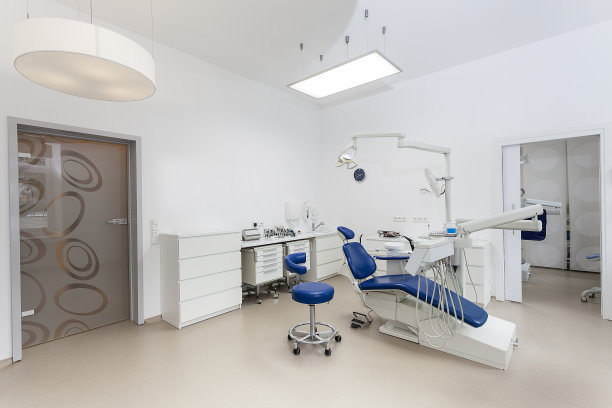Revolutionizing Smiles Dental Implant Treatment The Future of Restoring Confidence and Oral Health for Everyone
Summary: Dental implants have defined modern advancements in dental restoration, providing not only aesthetic benefits but also significant improvements in oral health and confidence for individuals who have lost teeth. This article explores four key aspects of the revolutionary dental implant treatment, including the technological innovations driving the industry, the profound effects on patients self-esteem, the accessibility of these solutions for various demographics, and the future trends we can expect in implant dentistry. By examining these areas, we can understand how dental implants are not just medical procedures but comprehensive solutions for enhancing quality of life.
1. Technological Innovations in Dental Implants

Over the past few decades, the field of dentistry has witnessed remarkable technological advancements that have transformed dental implant treatments. The introduction of computer-aided design and manufacturing (CAD/CAM) technology has significantly improved the precision and accuracy of implant placement. Using 3D imaging, dentists can create a personalized treatment plan, ensuring that the implants integrate seamlessly with existing bone structures.
Another groundbreaking innovation is the development of biocompatible materials for dental implants. Traditional implants were often made from titanium; however, the introduction of materials like zirconia has provided patients with safer and more aesthetic options. These materials not only enhance the appearance of the implants but also promote better integration with the jawbone, reducing the chances of rejection and complications.
Moreover, guided implant surgery has minimized the overall treatment time and improved patient outcomes. This technique involves using surgical guides tailored to each patients anatomy, allowing the dentist to place implants with pinpoint accuracy. All these innovations come together to provide a dental implant experience that is less invasive, more predictable, and ultimately more successful.
2. Enhancing Self-Esteem Through Restoration
The emotional and psychological effects of tooth loss can be profound, often leading to decreased self-esteem and social withdrawal. Dental implants play a crucial role in restoring not just the physical appearance of a smile but also the confidence that comes with it. Patients report feeling significantly more confident in social situations and are more likely to engage in activities they once avoided.
Furthermore, the ability to chew and speak without discomfort is another boon of dental implants. Unlike dentures, which can slip and cause awkward moments, implants function like natural teeth. This functionality allows individuals to enjoy their favorite foods and engage in conversations with assurance, ultimately contributing to a more fulfilling lifestyle.
The psychological benefits extend beyond just individual experiences; they also positively influence relationships. A confident smile can lead to improved interpersonal interactions and opportunities, both professionally and socially. Thus, dental implants do not merely replace teeth; they provide a holistic restoration of a persons quality of life.
3. Accessibility and Affordability of Treatments
One significant turning point in the world of dental implants is the increasing accessibility of these treatments. In the past, the cost of dental implants often placed them out of reach for many individuals. However, with innovations in technology and growing competition in the dental sector, prices have gradually become more affordable. Many dental practices now offer financing options and payment plans, making implants a viable option for a broader audience.
Additionally, outreach programs and partnerships with dental schools are helping to disseminate knowledge and skills in implant dentistry. These initiatives train new dentists in the latest techniques and allow students to perform procedures at a reduced cost, further increasing accessibility for patients.
The growing trend of international dental tourism also provides opportunities for patients to receive high-quality dental care at lower prices abroad. This movement not only helps patients save money but also enables them to access advanced dental techniques that may not be available in their home countries.
4. Future Trends in Dental Implantology
The future of dental implant treatment is exciting, with numerous trends indicating a shift towards even greater customization and patient-centered care. One notable trend is the emergence of digital dentistry, which utilizes artificial intelligence (AI) to enhance diagnosis and treatment planning. AI algorithms can analyze vast amounts of data, helping dentists make informed decisions tailored to individual patient needs.
Regenerative techniques are also on the rise. Researchers are exploring the use of stem cells for creating bone and gum tissue that may enhance the success of implants in patients with less bone density. This could lead to a breakthrough in the way dentists approach cases that would typically be deemed unsuitable for implants.
Lastly, as dental implants continue to evolve, expect to see more solutions that incorporate patient feedback and experiences. This could lead to the development of more comfortable and aesthetically pleasing designs that truly tailor to the needs of each patient. The advancements coming in the next decade will undoubtedly revolutionize the field further, making smiles brighter and healthier for everyone.
Summary:
Dental implants are changing the landscape of dental restoration, offering a path to renewed confidence and enhanced oral health. Through technological advancements, improvements in accessibility, and a focus on patient-centered care, the dental field is poised for a transformative future. The ongoing innovations promise to meet the diverse needs of individuals while restoring not just their teeth but also their zest for life.
This article is compiled by Vickong Dental and the content is for reference only.



